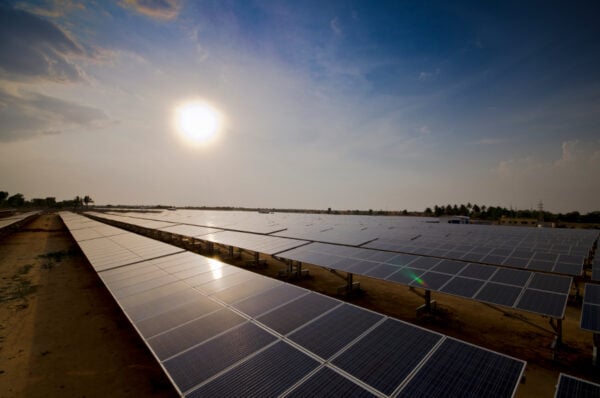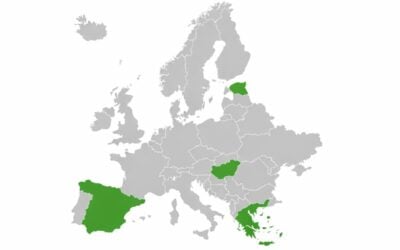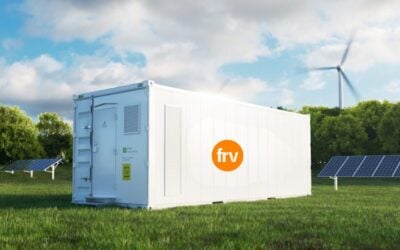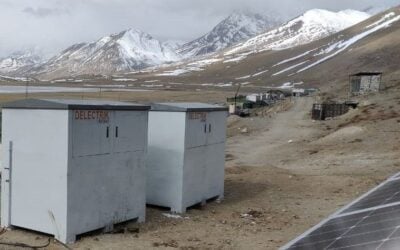
Maharashtra State Electricity Distribution Co (MSEDCL) has launched a multi-gigawatt battery storage tender supported by Viability Gap Funding (VGF).
The western Indian state government-owned company posted bid documents in the request for selection (RFS) process for setting up 2,000MW/4,000MWh of battery energy storage systems (BESS) in Maharashtra to its e-tender portal on 25 July.
The procurement for projects under a build, own, operate (BOO) model will be held under a tariff-based global competitive bidding process. A pre-bid meeting is scheduled for 18 August and the last date for submission of technical and financial bids is 15 September.
MSEDCL is seeking BESS projects which will connect to the state transmission utility (STU) and be made available to the distribution operator for charging and discharging on an “on-demand” basis.
Try Premium for just $1
- Full premium access for the first month at only $1
- Converts to an annual rate after 30 days unless cancelled
- Cancel anytime during the trial period
Premium Benefits
- Expert industry analysis and interviews
- Digital access to PV Tech Power journal
- Exclusive event discounts
Or get the full Premium subscription right away
Or continue reading this article for free
MSEDCL is Maharashtra’s main state electricity distribution company (Discom), and the battery storage capacity will help it and other state Discoms manage the grid during peak and off-peak hours.
Eligible projects will be capable of providing two daily cycles of their 2-hour duration battery capacity, entering into a battery energy storage purchase agreement (BESPA) with MSEDCL.
BESPAs are standardised framework contract agreements issued across India for tendered projects under national Ministry of Power guidelines for request for selection processes. They aim to provide clarity to investors, developers, and offtakers.
MSEDCL is seeking projects with aggregated capacity of 4GWh across multiple locations, with a minimum bid size of 100MW/200MWh.
Renewable energy companies with valid power purchase agreements (PPAs) for projects in the state are eligible to participate through DC-coupling BESS assets to their existing renewable energy facilities. Co-located projects must, however, charge exclusively from the onsite solar PV installation through DC-to-DC charging.
For standalone projects, MSEDCL will supply the electricity for charging via AC input in accordance with the Discom’s dispatch instructions. MSEDCL will also provide developers with land on a right-to-use basis, although developers with co-located projects must make their own land arrangements.
The RFS will include project Capex support available through the Indian Union government’s Viability Gap Funding (VGF) scheme. This scheme aims to bridge investment supply and demand to help kickstart India’s buildout of large-scale energy storage systems.
It offers IR1.8 million (US$20,637)/MWh of funding support, roughly 30% of project Capex.
In June, Minister of Power Manohar Lal announced an additional IR54 billion (US$631.5 million) support for 30GWh of BESS projects through the scheme, on top of 13.2GWh of VGF support already launched by that time.
Lal emphasised the essential role of energy storage to support India’s 393GW solar PV and wind installation target by 2030 from a total of 500GW new non-fossil fuel generation. Achieving the target would bring solar PV and wind to about half of India’s generation mix.
As noted by India Energy Storage Alliance (IESA) president Debmalya Sen in a post to LinkedIn, the MSEDCL RFS will be the third tender in India already to be run since the expansion of Viability Gap Funding (VGF), noting that 10GWh of the 30GWh is already open for competitive bidding.
IESA president Debmalya Sen noted in a Guest Blog on India’s energy storage sector for this site in early June that VGF is an important pillar of the government’s promotion of and support for storage alongside the creation of standard bidding guidelines, frameworks for energy storage projects and separate policies to support pumped hydro energy storage (PHES).
Earlier this month, Tata Power Renewable Energy Limited signed its first BESPA contract in India, with the state-owned power company NHPC Limited, after bidding successfully in NHPC’s Tranche-1 BESS tender, also supported by the VGF scheme. The Tata Power subsidiary will set up a 30MW/120MWh project in Kerala with Kerala State Electricity Board as the offtaker.





